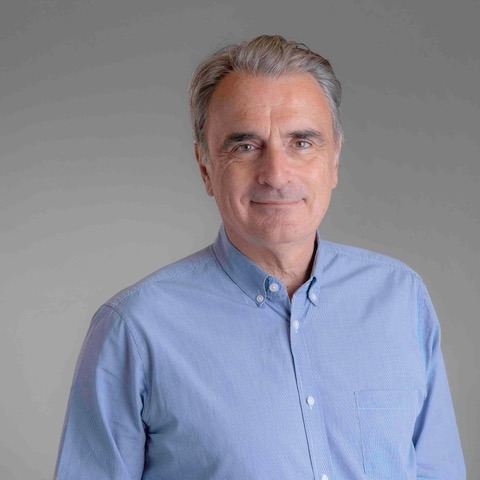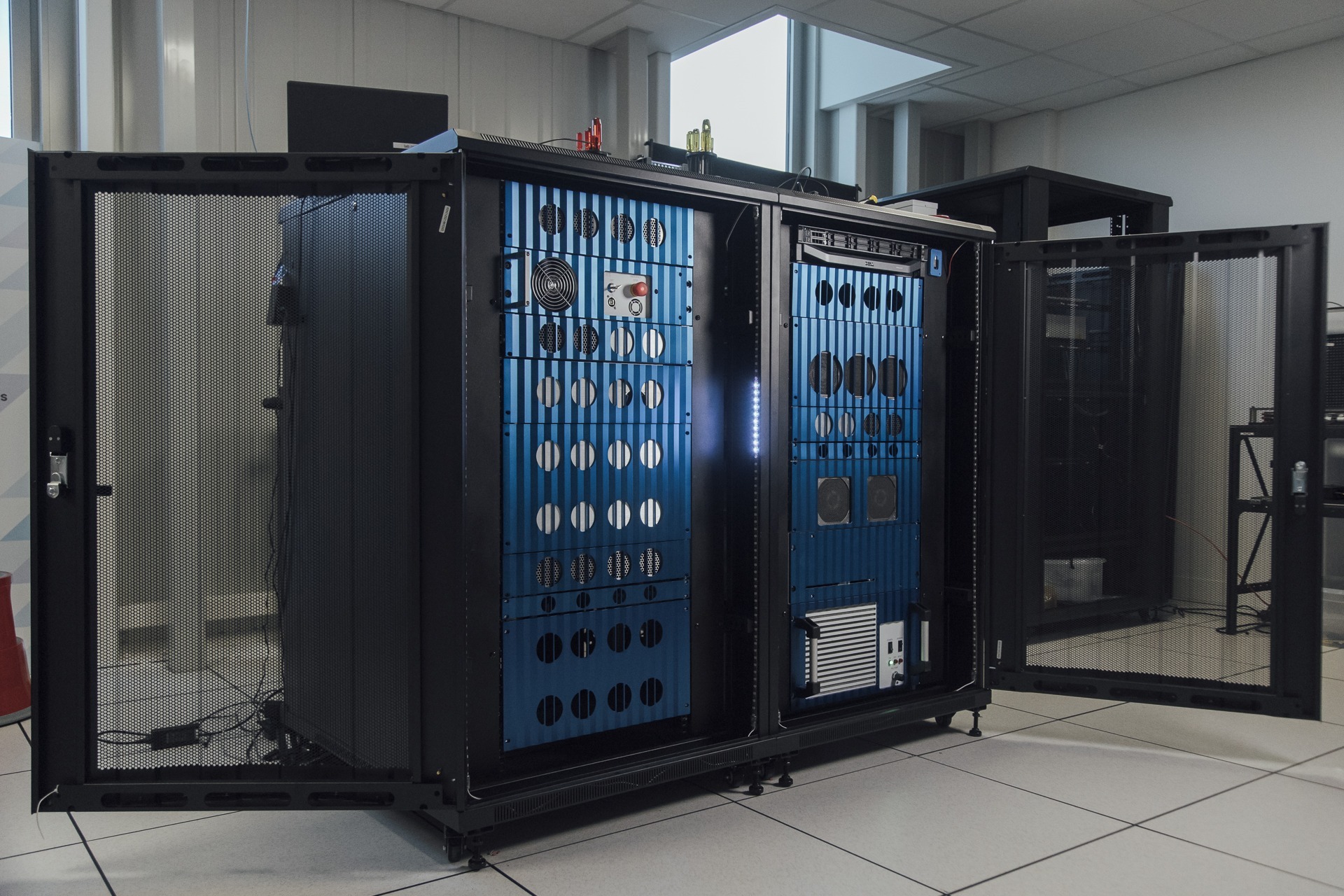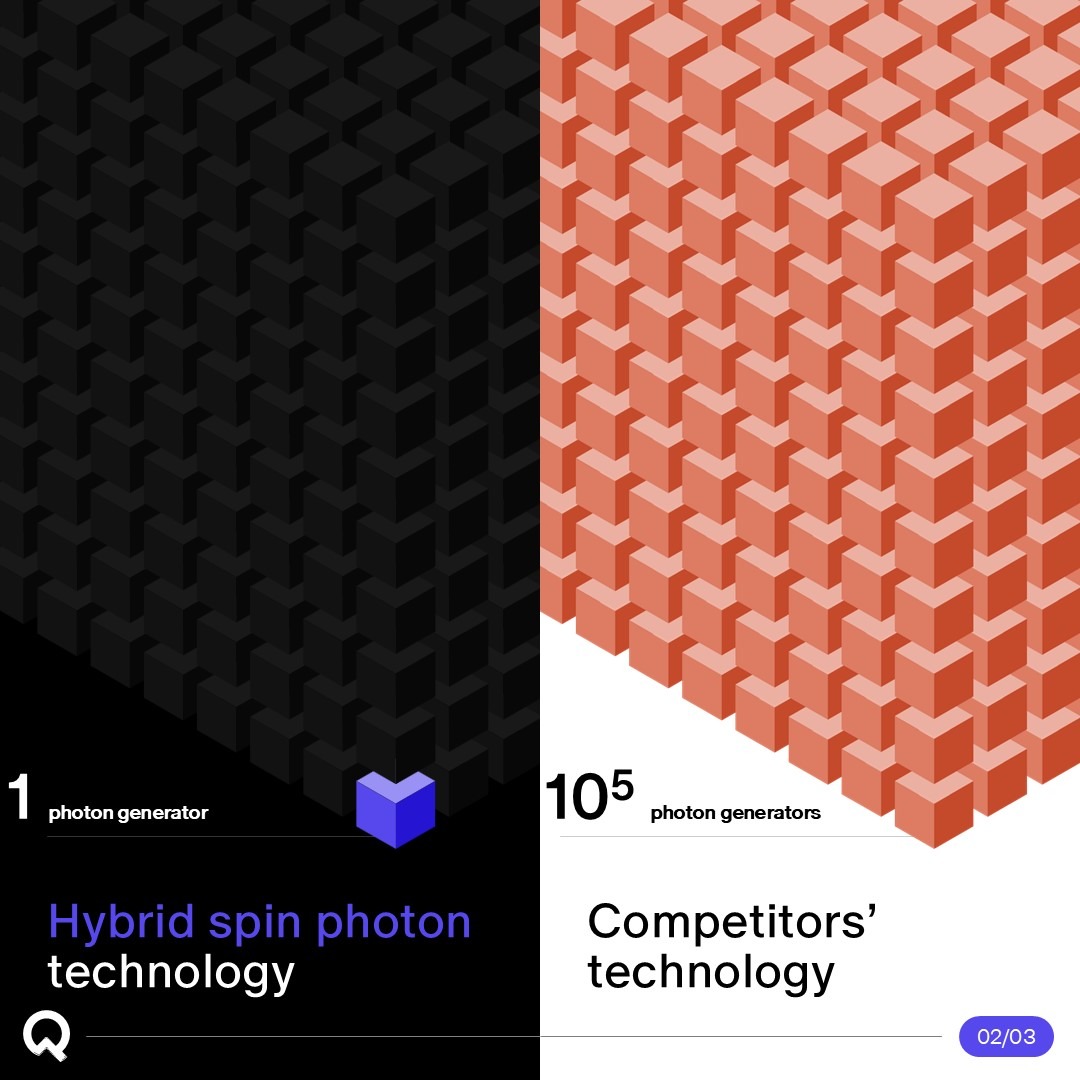Quandela also unveils the first European quantum computer in North America

Quandela, European leader in photonic quantum computing, announces the launch of its Canadian subsidiary, Quandela Canada, in Montreal. This marks a key step in the company’s international expansion, which is accompanied by the deployment of the first European quantum computer on North American soil, at the Bellevue Data Centre operated by Exaion, a subsidiary of Groupe EDF. This deployment is a major step forward in the realization of the partnership signed in November 2023 between Quandela and Exaion.
The opening of this subsidiary comes as IEEE Quantum Week (Institute of Electrical and Electronics Engineers) is about to be held in Montreal, and serves as an illustration of the relations recently formed with Quebec quantum players and Canadian companies. This move confirms Quandela’s commitment to becoming a key player within this dynamic ecosystem. Based in Montreal and Sherbrooke, in the heart of the Quantum Innovation Zone, the Canadian subsidiary will be led by David Rouxel, who holds a degree in Human-Computer Interfaces as well as an Executive MBA. A successful entrepreneur and international development expert, David brings his expertise to support Quandela’s growth in Canada.
This operation reinforces the company’s international expansion strategy. This strategy will result in the creation of quantum hubs, which are true networks of commercial, technological and scientific partners, aimed at accelerating the quantum transformation of the industrials within these hubs. Quandela also plans to open a new subsidiary in South Korea this autumn, in addition to the progressive deployment of several quantum hubs around the world.
A first European quantum computer in North America
The launching of Quandela’s Canadian subsidiary coincides with the strategic deployment of the first European quantum computer in North America, installed in Exaion’s Bellevue Data Centre, in collaboration with the infrastructure of PINQ², the Plateforme d’innovation numérique et quantique du Québec (Digital and Quantum Innovation Platform of Quebec). This deployment marks a decisive step in the fusion between quantum and high-performance computing technologies in Quebec, thus setting a new benchmark for the joint commercial offerings of Quandela and Exaion.
This unique combination, formed by Quandela’s quantum computer, PINQ²’s high-performance computing (HPC) infrastructure and Exaion’s hybrid HPC/quantum cloud platform, enables the development of cuttingedge solutions tailored to the specific needs of companies. This integrated offering will enable the creation of applications that meet complex multi-sector challenges. Potential applications include the digital simulation of industrial infrastructures through the use of digital twins, the simulation of combustion in thermal engines, and the optimization of fleet vehicle trajectories. These innovations are likely to have a major impact on various key sectors of the economy, such as energy, cybersecurity, automotive, aerospace and finance.
Launching of the Quandela-Exaion offering
The joint offering proposed by Quandela and Exaion is specifically designed to meet the various needs of companies. It offers comprehensive services, including team training, identification of relevant use cases, and algorithm co-development. These algorithms will be tested not only on Quandela’s quantum computers, but also on GPU-enhanced emulators, thus guaranteeing robust and efficient solutions.
“This Canadian subsidiary strengthens Quandela’s growing ties with Quebec’s quantum ecosystem. The launching of our hybrid HPC-quantum offering with Exaion represents an exceptional value proposition for companies, and should facilitate the democratization of quantum computing by making it possible to solve increasingly complex multi-sector problems. The opening of this subsidiary also marks the beginning of our strategy to develop quantum hubs internationally, with the aim of bringing together a community of industrial, technological and scientific players who are convinced that quantum is the key to solving some of the most pressing challenges facing humanity”, stated Valérian Giesz, Co-Founder and Chief Operating Officer of Quandela.
About Quandela
Quandela, entreprise leader dans le domaine du calcul quantique, propose des solutions de niveau industriel. Quandela conçoit, construit et fournit des systèmes quantiques prêts à l’emploi pour les datacenters, des processeurs quantiques accessibles via le cloud, et des services d’accès aux algorithmes.
Fondée en 2017 par la professeure Pascale Senellart, directrice de recherche au Centre de nanosciences et nanotechnologies (C2N) du CNRS, Niccolo Somaschi et Valérian Giesz, experts de renommée internationale en physique quantique, Quandela emploie plus de 100 collaborateurs de 20 nationalités différentes, en majorité des chercheurs et des ingénieurs en optique, algorithmes et sciences de l’information.
Quandela s’engage à rendre l’informatique quantique accessible à tous pour relever les défis industriels et sociétaux les plus complexes.
Pour en savoir plus : www.quandela.com
GB
Quandela, a leader in quantum computing, specializes in industry-grade quantum computing solutions. Quandela designs, builds, and supplies datacenter-ready quantum computing systems, cloud-accessible quantum processors, and algorithm with industrial value.
Founded in 2017 by Professor Pascale Senellart, Research Director at the Centre for Nanosciences and Nanotechnologies (C2N) at CNRS, Niccolo Somaschi and Valerian Giesz, internationally renowned experts in quantum physics, Quandela currently has over 100 employees from 20 different nationalities, mostly researchers and engineers in optical, algorithm and data science.
Quandela is committed to making advanced quantum computing accessible and beneficial for all, empowering innovators to solve the most complex industrial and societal challenges.





